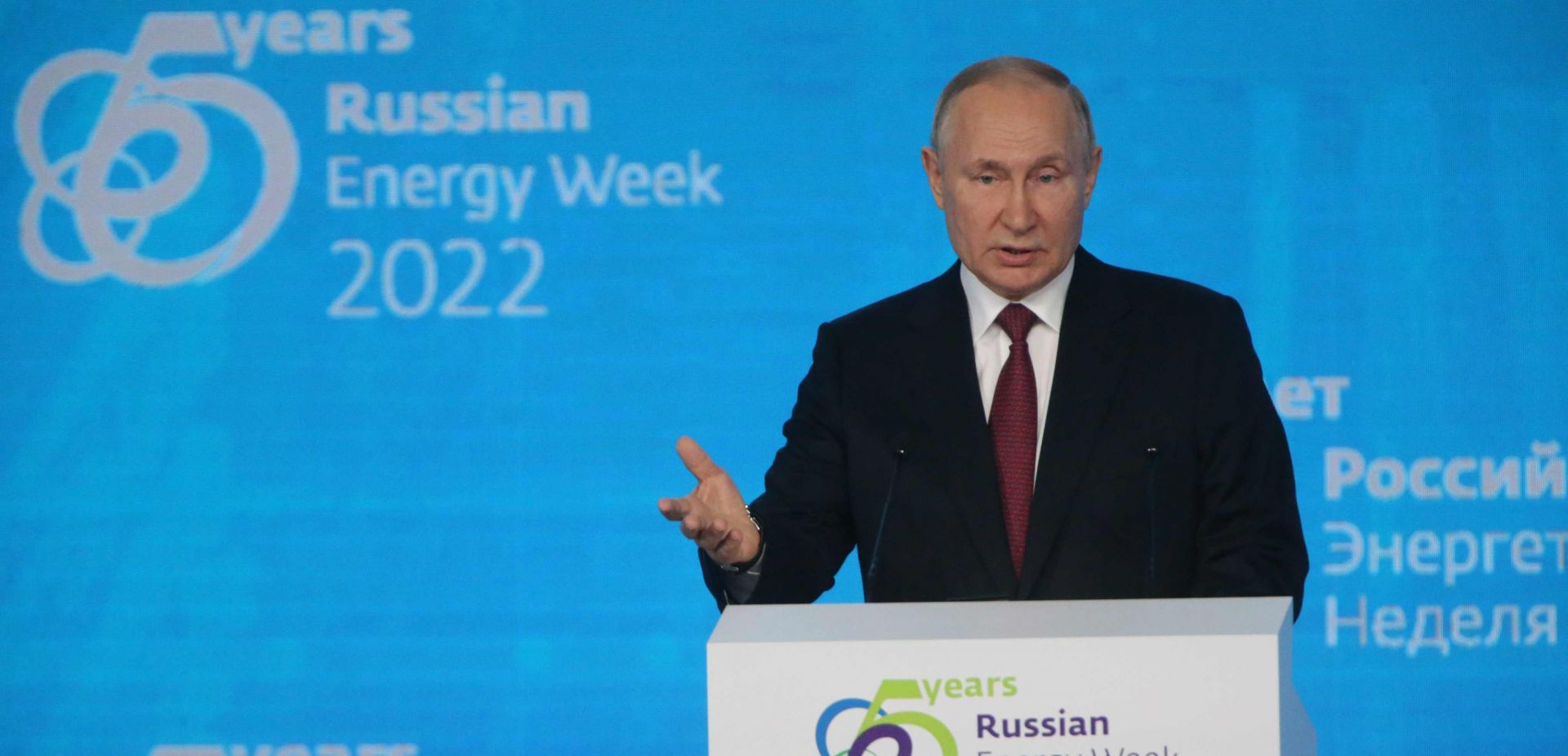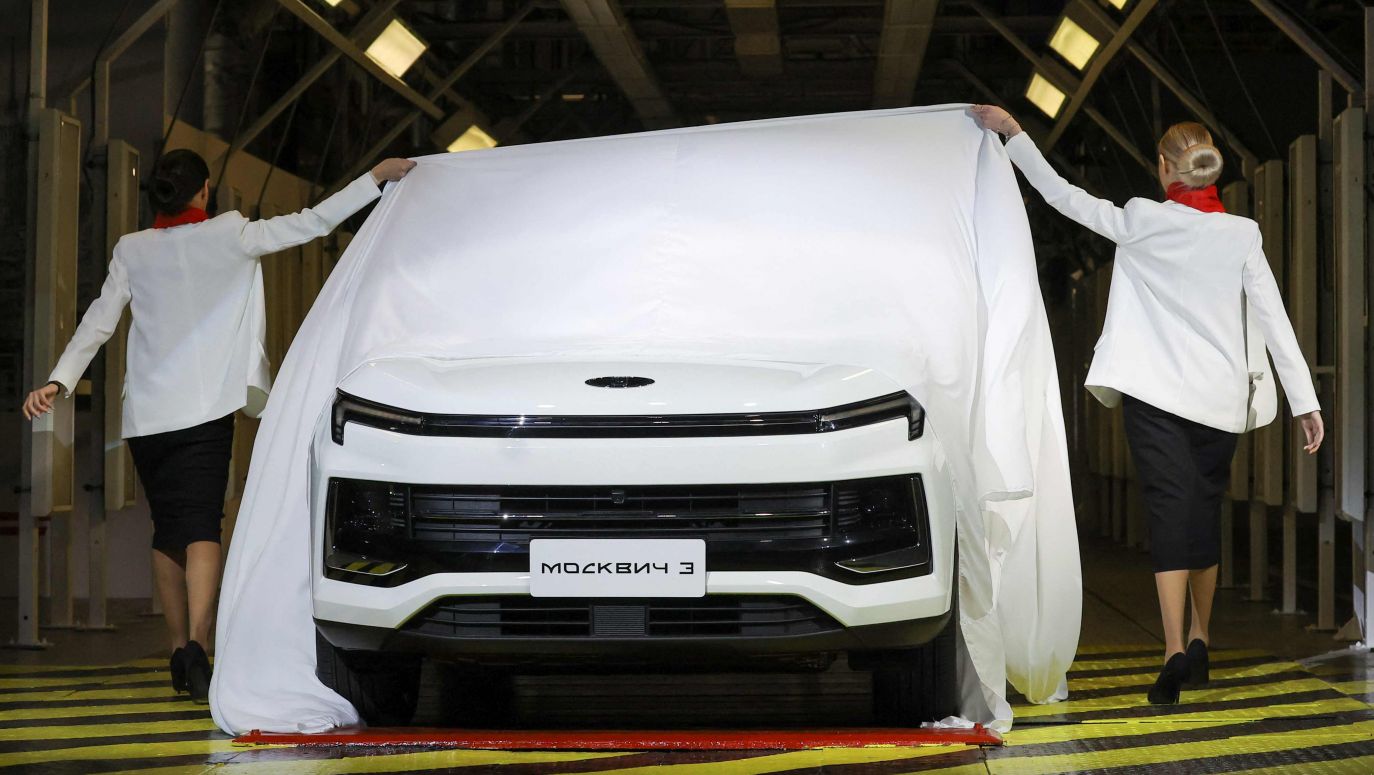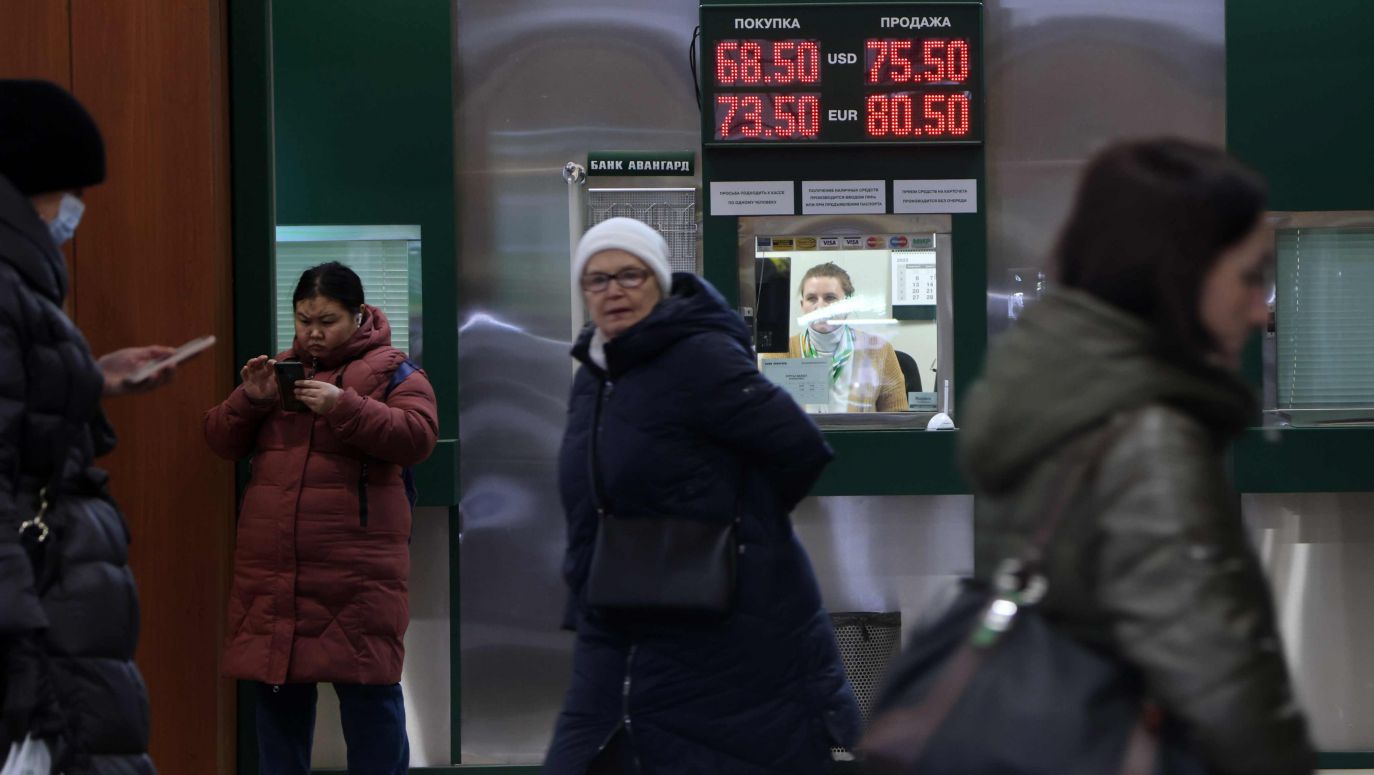Russia has raked in war dividends
08.03.2023
European discussions did not lead to any concrete action for a long time. And Russia exported as much energy as usual, but at higher prices, so it earned a record $357 billion, more than half of it from the European Union alone. In doing so, it recorded the largest current account surplus in 20 years, says Dr. Lukash Rachel, a Polish economist with the so-called Stanford Group, which is developing recommendations on sanctions against Russia.
TYGODNIK TVP: You are the only Pole who, together with prominent economists, former American ambassadors to Russia or the well-known political scientist Francis Fukuyama, is a member of the so-called Stanford Group. How did this initiative come about?
ŁUKASZ RACHEL: When war broke out in Ukraine, I happened to be interning at Princeton while my friends and family were helping Ukrainians in Poland. I wanted to get involved, too, but concluded that I would accomplish the most by working within my area of expertise. So I got involved with analysis and published articles on the costs and benefits of economic sanctions against Russia. Through these writings I got involved in discussions among researchers, and when the Group was established, we were invited to join. The Group is coordinated by the former U.S. ambassador to Moscow, Michael McFaul (he held that post from 2012 to 2014 and is now a professor of political science at Stanford University - editor's note). Over the course of the year, we wrote 10 substantive reports with recommendations that we submitted to policymakers in the U.S., but any reader of our conversation can also find them on our website.
What is the purpose of these activities?
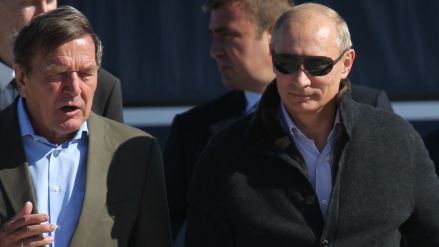
How the Kremlin’s lobbyists are steering European politics.
see more
Clearly, the academic and business communities should lead the discussion on what kind of sanctions are the most effective in terms of weakening the Russia’s ability to wage war. Good sanctions are those that hit the country that violates international rules, but minimize the negative consequences for the citizens of sanctioning countries. Today we have a package of reliable reports with recommendations on economic policy towards Russia in many areas. These recommendations influence the direction of discussions conducted by Western governments. We can consider it a success that the world has finally introduced trade restrictions against Russia and that we have managed to convince the majority of the European political class to do so.
And yet it was not so obvious?
What is obvious is that there are countries in Europe that are closer or further to Russia, both geographically and politically. This made it more challenging for some to accept the inevitable. For example, Germany has been significantly more dependent on Russian supplies than the United States. So advocacy for sanctions varied, and the position depended on many factors, including political ties narratives in the years preceding the invasion. There is no doubt that the foot dragging and fear mongering among some countries weakened the response of the west. Nevertheless, the world has already achieved much more than one might have expected at the beginning. Despite the initial hesitation of some European countries, substantial economic restrictions have now been put in place. And the pivot away from Russian energy imports, and away from the philosophy of close engagement with the regime, is likely to be permanent.
But even after the outbreak of the war, Germany was by no means active on the front line against Russia. On the contrary, it approached the matter with extreme caution.
The political class in Europe, especially in Germany, France, and the Netherlands, adhered to their old rule of not rushing into decisions during the first weeks of the war. The problem was that the situation was unprecedented, there was an upheaval in international politics. Today we can judge that Europe acted too cautiously in the first weeks and months of the conflict, which I think weakened its position considerably.
We'll get to the numbers in a second; but isn't the fact that energy was not sanctioned until December 2022 a historic embarrassment for European politicians?
Unfortunately, the perceived short-term interests of individual countries or companies prevented this source of funding for Putin's war from being cut off quickly enough. In the first phase of the war, the embargo on Russian oil was imposed only by the United States. However, this was only a symbolic gesture, as the United States was never a significant market for Russian energy. Europe, on the other hand, delayed its decisions. It should be remembered that it was Putin who turned off the gas. Finally, on December 5, a European embargo was imposed on Russian oil by sea, and from February, a similar measure was extended to fuels and petroleum products. However, oil continues to be pumped via the Druzhba pipeline to the Balkan countries, as well as to Poland. This is quite interesting in the current situation, as the Germans themselves have decided not to purchase oil from this area.
Since February 2022, all European governments were concerned that decisive action against Russia would lead to collapse in their own countries; there were predictions that without Russian raw materials, economic catastrophe was inevitable.
Today, gas from Russia is no longer flowing into Europe, and Poland and Germany have more of it in their storage facilities than they did before the war. Industrial production in the EU has not fallen dramatically, so all the catastrophic visions that assumed we would not be able to function without Russian energy sources have proven untrue. Enriched by this new experience, we must admit that the gas taps should have been turned off immediately and that the fears of an energy shock in Europe were greatly exaggerated.
I feel a little manipulated, though. The sanctions were supposed to wipe Putin off the political stage; in the meantime, figuratively speaking, only one tooth has been knocked out. Russia's GDP growth for 2022 is somewhat lower than that of Western European countries.
As I explained earlier, the main sanctions, which include the sale of energy, were introduced only recently. Moreover, the strong GDP growth is partly the result of the war boom and the conversion of the Russian economy to intensive defense production.
This has been, strange as it may sound, a positive stimulus for the Russian economy, not necessarily for Russians themselves. In areas that are important to Russian citizens, the decline has been much greater - car production, for example, has fallen dramatically.
However, it is quite clear that the scenarios of the collapse of the Russian economy have not materialized so far. That should motivate us to move forward on sanctions.
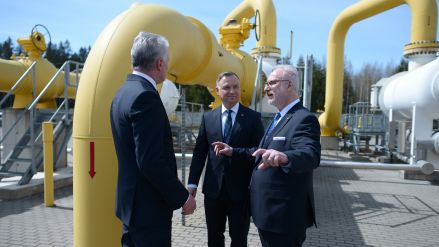
Poland will soon gain access to Israeli and Egyptian fields.
see more
What about the paradox in commodity markets? Sanctions and embargoes seem to have had the opposite effect. Russia's revenues in 2022 have increased in some areas...
The paradox you mention is mainly due to a basic mechanism of economics: When the market expects a decrease in supply, the price rises. This process is strengthened by uncertainty: since there is a risk of a drastic price increase in the future, it makes sense to secure it by buying today. That raises prices here and now, even though today's demand and today's supply have not changed. And this is exactly the mechanism that worked in 2022. For several months, European leaders discussed reducing imports from Russia. Thus, the market began to assess supply shortages and the risk of an energy crisis. For a long time, these European discussions did not lead to any concrete measures. Russia exported as much energy as usual, but at higher prices. And it collected a record $357 billion energy earninings in 2022, more than half of it from the European Union alone. It thus ran its largest current account surplus in 20 years. This was the most important loophole in our sanctions regime. This gave Putin a soft financial cushion until at least 2023. But I repeat: this highly undesirable situation is temporary. The data already show a drastic turnaround: In January 2023, Russia reported a record budget deficit since 1998 (about $25 billion), and its revenues from energy sales are already almost half of what they were a year ago. This means that this financial cushion of the Kremlin is rapidly melting away. Financing the war will become much more difficult in the future.
But when will it happen? How long can Ukraine hold out? How long can NATO support it? Don't you think that Russia has calculated sanctions into a military operation? It is waging a war of attrition, and as we see, there are no clear consequences.
I disagree. Russia is suffering clear consequences, and their effects will be seen in the coming years. What is happening in Ukraine will be followed by Russia's economic and social marginalization. The mobilization itself has resulted in the most resourceful and enterprising young people leaving the country. Further economic sanctions will exclude Russia from the global system of technology and knowledge flows. For an economy that produces nothing, but imports technologies and components, this means that it will fall off the development path. There is no country in history that could remain competitive in such a system.
The USSR existed from 1922 to 1991 and was also cut off from the path of development. So it created its own system...
If the aspirations of the Russians go back to the model of the Soviet Union, and Russia intends to function that way, then I think we can live with that. Of course, in the first decades after World War II the Soviet state still kept pace with the United States in the technological race, but later there was the collapse and decline of that economic model. However, today's Russia is not the USSR, it has a much smaller population and does not form a communist bloc that could have counterbalanced the West. From now on, Russia will be a poor and isolated country.
Vladimir Putin declared a few days ago that Russia is turning to Asia, the Middle East, Africa and South America…
It all sounds nice on Russian propaganda television. However, such a realignment is not so straightforward. Russia's system for selling raw materials was built with Western orientation in mind. It is impossible to suddenly turn the whole country 180 degrees to the east, if only because the raw material deposits are several thousand kilometers away from potential buyers. Not to mention an economy beyond raw materials on which to build long-term prosperity. The geographical factor is crucial here: the economic center of China - Beijing, Shanghai, Shenzhen - is 7000 kilometers away from Moscow! Another problem is the aspirations of the Russian elite, which has always wanted to live and spend in European style, not in... Beijing style. And most importantly, we cannot speak of a "partnership" when Russia's economy is a dozen times smaller than the potential of China or India. It's more like economic subordination.
What about the ruble? If it had been weak, Putin would have felt it strongly and would not have balanced the budget. In 2022, however, the Russian currency has held up well.
Regarding the ruble, I would like to make two important points that I think are missing from the debate on this issue. First, the ruble's performance is not surprising given what happened in 2022. Shortly after the war began, there was a significant risk of a total collapse of the Russian financial system, and the ruble weakened dramatically as a result. The rapid response of the central bank - drastically raising interest rates from 10% to 20% and introducing restrictions on capital movements and the convertibility of the ruble - avoided this scenario. It soon became clear that Western sanctions were focused on restricting Russia's imports from the West, while leaving Russian exports (mainly energy) essentially untouched. This combination of sanctions means a high supply of euros and dollars in Russia (from revenues from energy sales), but low demand for them (low imports from the West, triggered by the restrictions). A high supply of hard currency and low demand for it is a recipe for a strong ruble - and indeed, a few months after the outbreak of war, the Russian currency was the strongest in several years. But when sanctions were extended to exports, the ruble began to weaken. I think we can expect further weakening in the future.
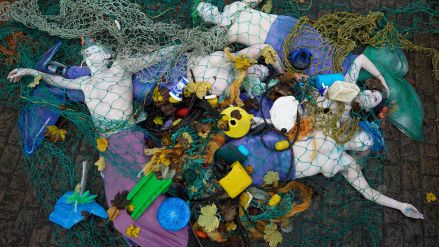
Moscow sought to make Western countries dependent on Russian energy resources.
see more
And the second issue?
The second problem is that the ruble exchange rate does not say much about the state of the Russian economy or whether sanctions are working. There is no doubt that import sanctions, which have strengthened the ruble, are a major problem for the Russian economy. In addition, the strong ruble in 2022 is a problem for Russia because it limited the ability to finance the budget from energy sales - Russia received fewer rubles from each barrel of oil sold. Hence the drastic reduction in interest rates - currently 7.5% - and the attempt to receive gas payments in rubles.
For now, it is impossible to stop the flow of oil from Russia, and the Stanford group has an idea for a so-called price cap. At the moment it is below the market price because of the EU sanctions, which is another absurdity.
In fact, our group argues that the price cap should be one of the key elements of the sanctions because it allows Russia to limit its revenue from energy sales while avoiding the energy shock that would be caused by a full embargo. Washington and Brussels have set this cap at $60, although the prices Russia receives today are arguably lower. At current caps and market prices, our group projects Russia will receive $166 billion in revenues in 2023, a significant drop from last year. But at a price cap of $35 per barrel, a drop in Russian revenues to $100 billion would pose a serious problem for the Russian budget. I believe that a correspondingly lower price cap is now the most important issue to be addressed in the area of economic sanctions.
An interesting idea of the Stanford group is the imposition of secondary sanctions, i.e., consequences for countries that evade the restrictions.
Since economic sanctions have existed in history, they have been imperfect. Except that such loopholes in the sanctions system are not an argument against restrictions. Some loopholes are easy to spot. For example, Turkey suddenly increased its fuel exports in 2022, so it is obvious that production is done with oil sourced from Russia. There are cases where fuels are blended and, if it is Russian oil, sold under another country's brand. Other loopholes are more difficult to detect. I think it is worthwhile to investigate civilian companies that are working with the Russian defense industry and that continue to cooperate in some way so that defense equipment can continue to be supplied. I stress, however, that we in the West need to understand that the loopholes in the sanctions are not an argument against their implementation – some degree of leakage must be factored in. The important thing is the net effect, even taking into account the shortcomings of the restrictions. Of course, the west ought to maximize sanctions’ effectiveness, and in this context we need cooperation on data collection and minimizing loopholes. Sanctions against third countries that allow circumvention of sanctions against Russia are a rather drastic form of response to these challenges and can have undesirable long-term political effects. Therefore, it is worth applying them only in the most serious cases of violations of the sanctions regime.
The group's mentor, the aforementioned Michael McFaul, advocates more radical political measures.
In his view, Russia should be declared a terrorist state. In my view, this would certainly be an important symbol a year after the start of the war and would limit the possibilities of the Russian economy for years to come, regardless of further sanctions. There is an ongoing debate in the West about whether it is in Ukraine's and the West's interest to completely sever diplomatic relations with Russia. Or is it better to leave the door open for communication.
Will 2020-2022 have its own chapter in future economics textbooks? What have they taught us?
It could be a caesura like the one brought about by the 1973 oil shock or the 2008 economic crisis. We need to wait for the dust to settle when everything will return to normal and see what this norm will be. On the one hand, the economy will continue to be influenced by strong trends and phenomena that were present long before the pandemic: technologies are rushing forward, societies are aging, and there is an ongoing trend of rising income and, above all, wealth inequality. On the other hand, the post-pandemic economy, for the time being, seems to be governed by different laws: soaring inflation and interest rates are phenomena not seen in the West for years. Certainly, the period of pandemic and war is a great lesson for economic policy makers. For me, the interesting thing, on the research side, is how some governments responded to the crisis by stimulating consumption through a system of social transfers. Companies, in turn, have learned that the most efficient parts of supply chains, i.e. the cheapest ones, are not stable at all. The global economy has proven to be very vulnerable. I think in the future we will put more emphasis on shock-resistant solutions.
–interview by Cezary Korycki
Dr Łukasz Rachel is a macroeconomist, assistant professor at University College London, graduate of the London School of Economics, Fulbright scholarship holder at Harvard University. Winner of the prize for young macroeconomists awarded by the University of Copenhagen. The only Pole in the so-called Stanford Group of several dozen economists and politicians. Member of the Polish economic association "Prosperity for generations".
